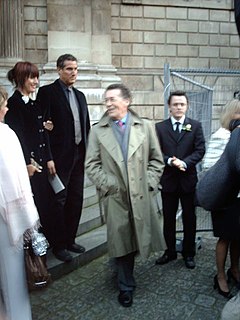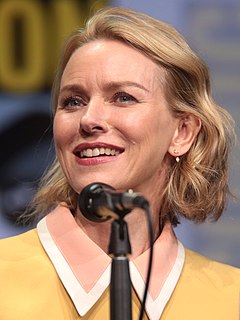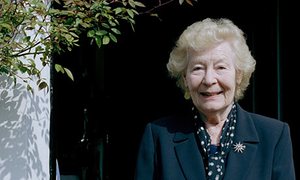A Quote by Pete Buttigieg
I met my husband through an app that talks to social-networking sites, and that's how we were sort of suggested to each other, and it turned out to be a great match.
Related Quotes
We had met with Ben Stiller here in LA when I was shooting The Ring and he was doing Meet The Fockers and we have friends in common. But we didn't know each other well. He's fantastic and we really had a great time on this and we were both laughing at where we were at, this other couple, and how it was mirroring what we were going through as well. It was clever writing in that way.
People generally worry about social networking more than they need to. In kind of consumer internet investing and on social and professional networks, I kind of look at time spending and time efficiency. You know, time saving sites. So on time spending sites, things where you play lots of games or that sort of thing, you might worry about a productivity loss if people are spending a lot of time doing that. So if there's a lot of kind of addictive gaming going on during work hours, that won't be as helpful to you.
We're being asked to continually be "authentic" and "honest" with the world through social media. There's a demand to post our wedding pictures, baby pictures (only minutes after the birth), our relationship status, and our grief and joys on Facebook and Instagram. Similarly, we construct persona through dating apps and networking sites. All of these social media networks exert pressure on us to share the personal details of our lives with unknown masses. So the pressure on the characters in "Openness" isn't merely romantic, but public/social as well.
I've known Kyle O'Reilly since 2009. Me and him actually met each other when we had our very first match against each other for Gabe Sapolsyky's DragonGate USA show. Me and Kyle went in there and we had a match that kind of made waves throughout the independent scene as far as us getting our names out there. We both got signed to Ring of Honor at the exact same time.
As I came through medical school, it was very exciting because physicians were reaching out to each other, between the U.S. and the Soviet Union, and sort of helping to build bridges among, you know, people, people who were not allowing our government to pit us against each other and to actually take us to the brink of nuclear war. And Physicians for Social Responsibility wound up getting a Peace Prize, a Nobel Peace Prize, which they shared with International Physicians for the Prevention of Nuclear War.
































